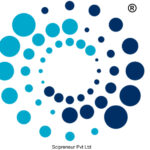
Scientist Kill Brain Cancer In Mice With Combination Immunotherapies
By: Children’s Hospital of Eastern Ontario Research Institute
February 22, 2017
A promising combination of immunotherapies delivers a one-two punch to brain cancer tumours with high cure rates in mice.
A promising combination of immunotherapies delivers a one-two punch to brain cancer tumours with high cure rates in mice.
A promising combination of immunotherapies delivers a one-two punch to brain cancer tumours with high cure rates in mice, scientific evidence published in Nature Communications says.
Researchers at the Children’s Hospital of Eastern Ontario (CHEO) in Ottawa found that a combination of drugs known as SMAC Mimetics and immune checkpoint inhibitors (ICIs) amplifies kill rates of cancer tumour cells in laboratory testing. Researchers also discovered a new mechanism by which the combination promotes long-term immunity against glioblastoma tumours. The combination therapy also proved to be highly effective against breast cancer and multiple myeloma.
“These findings represent a significant evolution in our research and the field of immunotherapy. We are the first in the world to show the synergistic tumour-killing impact of combining SMAC Mimetics with immune checkpoint inhibitors for glioblastoma,” said Dr. Robert Korneluk, distinguished professor at the University of Ottawa and senior scientist at the CHEO Research Institute. “You could say it takes two to tango. We believe that it takes a combination strategy to impact cancer cure rates.”
In 2014, a team of scientists led by Dr. Korneluk discovered that combining SMAC Mimetics with immune stimulators or live virus therapies had a synergistic or amplified tumour-killing effect that was greater than either agent on its own. Today’s news shows that SMAC Mimetics also have a powerful synergistic effect with ICIs, relatively new drugs that are showing great promise in the clinic. SMAC Mimetics known as LCL161 and Birinapant were combined with ICI antibodies targeting PD-1 and CTLA-4 immune checkpoints.
Eric Lacasse, a scientist at the CHEO Research Institute, said: “Two drug companies have initiated human clinical trials this year to assess the impact of this combination of SMAC Mimetics and ICIs on patients with a variety of cancers. Although it could be years before any clinical trials begin for adults or children with the deadly brain cancer, glioblastoma, we’re looking forward to seeing how scientific evidence from these experimental treatments adds to our knowledge. It’s an exciting, exploratory field and we hope we’ve hit a home run.”
Shawn Beug, lead author of the 2014 and 2017 papers, said: “This research heightens our understanding of the mechanics behind this double-whammy effect, which both enhances the immune response and weakens tumour cells to immune attack. We’re hoping that more oncologists and biotech companies test out this combination in clinical trials as we continue to decipher how SMAC Mimetics encourage the immune system to kill cancer cells.”
The research was funded by the Canadian Cancer Society Research Institute, Brain Canada (with financial support from Health Canada through the Canada Brain Research Fund) and the Canadian Institutes of Health Research. In addition, the work was supported by donations to the Ottawa Regional Cancer Foundation, the Kiwanis Medical Foundation and the CHEO Foundation.
The University of Ottawa—A crossroads of cultures and ideas
The University of Ottawa is home to over 50,000 students, faculty and staff, who live, work and study in both French and English. Our campus is a crossroads of cultures and ideas, where bold minds come together to inspire game-changing ideas. We are one of Canada’s top 10 research universities—our professors and researchers explore new approaches to today’s challenges. One of a handful of Canadian universities ranked among the top 200 in the world, we attract exceptional thinkers and welcome diverse perspectives from across the globe.
About the CHEO Research Institute
The CHEO Research Institute coordinates the research activities of the Children’s Hospital of Eastern Ontario (CHEO) and is affiliated with the University of Ottawa. Its three programs of research include molecular biomedicine, health information technology, and evidence to practice research. Key themes include cancer, diabetes, obesity, mental health, emergency medicine, musculoskeletal health, electronic health information and privacy, and genetics of rare disease. The CHEO Research Institute makes discoveries today for healthier kids tomorrow. For more information, visit www.cheori.org
Media contact:
CHEO Research Institute
avienneau@cheo.on.ca
Story Source:
Materials provided by Children’s Hospital of Eastern Ontario Research Institute.
Journal Reference:
- Shawn T. Beug, Caroline E. Beauregard, Cristin Healy, Tarun Sanda, Martine St-Jean, Janelle Chabot, Danielle E. Walker, Aditya Mohan, Nathalie Earl, Xueqing Lun, Donna L. Senger, Stephen M. Robbins, Peter Staeheli, Peter A. Forsyth, Tommy Alain, Eric C. LaCasse, Robert G. Korneluk. Smac mimetics synergize with immune checkpoint inhibitors to promote tumour immunity against glioblastoma. Nature Communications, 2017; 8 DOI: 10.1038/ncomms14278







Leave a Reply